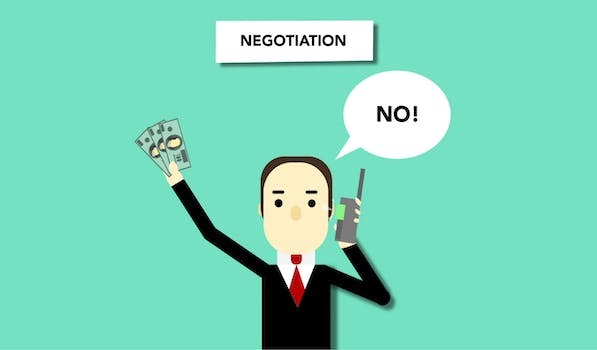How To Save Money As A Businessman
“Maximize profits by minimizing expenses: Tips for saving money as a businessman.”
Introduction
As a businessman, saving money is crucial for the success of your business. It allows you to invest in growth opportunities, increase profits, and stay competitive in the market. In this article, we will discuss some effective ways to save money as a businessman.
Cutting Costs: Simple Strategies for Saving Money in Business
As a businessman, saving money is always a top priority. Whether you’re just starting out or have been in business for years, cutting costs can help you increase profits and stay competitive in your industry. Fortunately, there are many simple strategies you can use to save money in your business. Here are some tips to get you started.
First, take a close look at your expenses. Are there any areas where you can cut back? For example, do you really need that expensive office space, or could you downsize to a smaller location? Could you negotiate better rates with your suppliers or find more affordable alternatives? By analyzing your expenses and finding ways to reduce them, you can save a significant amount of money over time.
Another way to save money is to be more efficient with your resources. For example, are you wasting energy by leaving lights and electronics on when they’re not in use? Could you streamline your production process to reduce waste and increase productivity? By being more mindful of how you use your resources, you can save money on your utility bills and other expenses.
In addition to cutting costs, you can also increase revenue by finding new sources of income. For example, could you offer additional products or services to your customers? Could you expand your customer base by targeting new markets or demographics? By diversifying your revenue streams, you can reduce your reliance on any one source of income and increase your overall profitability.
Another way to save money is to take advantage of technology. There are many tools and software programs available that can help you automate tasks, streamline processes, and reduce the need for manual labor. For example, you could use accounting software to manage your finances, or project management software to keep track of your tasks and deadlines. By using technology to your advantage, you can save time and money while increasing efficiency and productivity.
Finally, don’t forget to take care of your employees. Happy employees are more productive and less likely to leave, which can save you money in the long run. Offer competitive salaries and benefits, provide opportunities for professional development, and create a positive work environment that fosters collaboration and teamwork. By investing in your employees, you can save money on recruitment and training costs while building a strong and loyal team.
In conclusion, there are many simple strategies you can use to save money in your business. By analyzing your expenses, being more efficient with your resources, diversifying your revenue streams, taking advantage of technology, and investing in your employees, you can increase profitability and stay competitive in your industry. Remember, every dollar you save is a dollar you can reinvest in your business, so don’t be afraid to get creative and find new ways to cut costs and increase revenue. With a little effort and ingenuity, you can save money and achieve your business goals.
Maximizing Profits: Tips for Reducing Expenses and Increasing Revenue

As a businessman, it’s important to keep a close eye on your expenses and find ways to save money wherever possible. By reducing your expenses and increasing your revenue, you can maximize your profits and grow your business. Here are some tips for saving money as a businessman:
1. Negotiate with suppliers
One of the easiest ways to save money is to negotiate with your suppliers. If you’re buying products or services in bulk, you may be able to get a better price by negotiating with your suppliers. Don’t be afraid to ask for a discount or a better deal – the worst they can say is no.
2. Use technology to streamline your operations
Technology can be a great way to save money and streamline your operations. For example, you can use software to automate tasks like invoicing, payroll, and inventory management. This can save you time and money, and help you avoid costly mistakes.
3. Cut unnecessary expenses
Take a close look at your expenses and see if there are any that you can cut. For example, do you really need that expensive office space, or can you work from home or a cheaper location? Are there any subscriptions or services that you’re paying for but not using? By cutting unnecessary expenses, you can free up more money to invest in your business.
4. Focus on customer retention
Acquiring new customers can be expensive, so it’s important to focus on retaining your existing customers. By providing excellent customer service and building strong relationships with your customers, you can increase customer loyalty and reduce churn. This can save you money in the long run and help you grow your business.
5. Offer incentives for referrals
Word-of-mouth marketing can be a powerful tool for growing your business, and offering incentives for referrals can help encourage your customers to spread the word. For example, you could offer a discount or a free product or service to customers who refer new business to you. This can help you acquire new customers at a lower cost than traditional marketing methods.
6. Outsource non-core functions
If you’re spending a lot of time and money on non-core functions like accounting, HR, or IT, consider outsourcing these tasks to a third-party provider. This can save you money and free up your time to focus on your core business activities. Just be sure to choose a reputable provider and negotiate a fair price.
7. Invest in employee training
Investing in employee training can help you save money in the long run by improving productivity, reducing errors, and increasing customer satisfaction. By providing your employees with the skills and knowledge they need to do their jobs effectively, you can improve your bottom line and grow your business.
In conclusion, there are many ways to save money as a businessman. By negotiating with suppliers, using technology to streamline your operations, cutting unnecessary expenses, focusing on customer retention, offering incentives for referrals, outsourcing non-core functions, and investing in employee training, you can maximize your profits and grow your business. Just remember to always keep an eye on your expenses and look for ways to save money wherever possible.
Smart Spending: How to Prioritize Business Expenses and Save Money
As a businessman, saving money is always a top priority. Whether you’re just starting out or have been in business for years, finding ways to cut costs and prioritize expenses can help you stay profitable and competitive in today’s market. Here are some tips on how to save money as a businessman.
First and foremost, it’s important to prioritize your expenses. This means identifying which expenses are essential to your business and which ones can be cut back or eliminated altogether. For example, if you run a small retail store, rent and inventory costs are likely to be your biggest expenses. On the other hand, marketing and advertising expenses may not be as critical to your business’s success.
Once you’ve identified your essential expenses, it’s time to look for ways to save money on them. One way to do this is by negotiating with your suppliers or vendors. Many suppliers are willing to offer discounts or lower prices if you buy in bulk or commit to a long-term contract. You can also look for alternative suppliers who offer lower prices or better terms.
Another way to save money is by cutting back on unnecessary expenses. This might mean reducing your office space or downsizing your staff. You can also look for ways to streamline your operations, such as automating certain tasks or outsourcing non-core functions.
In addition to prioritizing and cutting back on expenses, it’s also important to be smart about how you spend your money. This means investing in areas that will provide the greatest return on investment (ROI) for your business. For example, if you run an e-commerce store, investing in a high-quality website and online marketing campaigns may provide a greater ROI than investing in traditional advertising methods.
Another way to be smart about your spending is by taking advantage of tax deductions and credits. Many business expenses, such as office supplies, travel expenses, and equipment purchases, can be deducted from your taxes. You can also take advantage of tax credits for hiring veterans, investing in renewable energy, and other business-related activities.
Finally, it’s important to stay on top of your finances and track your expenses closely. This means keeping accurate records of all your business transactions and regularly reviewing your financial statements. By doing so, you can identify areas where you’re overspending and make adjustments as needed.
In conclusion, saving money as a businessman requires a combination of prioritizing expenses, cutting back on unnecessary costs, being smart about your spending, and staying on top of your finances. By following these tips, you can reduce your expenses, increase your profitability, and stay competitive in today’s market.
Negotiating Deals: Techniques for Getting the Best Prices and Discounts
As a businessman, saving money is always a top priority. One of the most effective ways to do this is by negotiating deals with suppliers and vendors. Negotiating deals can help you get the best prices and discounts, which can ultimately save you a lot of money in the long run. In this article, we will discuss some techniques for negotiating deals and getting the best prices and discounts.
The first step in negotiating a deal is to do your research. You need to know what the market price is for the product or service you are looking to purchase. This will give you a baseline to work from and help you determine what a fair price is. You can use online resources, such as industry reports and pricing guides, to get an idea of what the market price is.
Once you have done your research, it’s time to start negotiating. One of the most important things to remember when negotiating a deal is to be confident. You need to believe in the value of your business and what you are offering. This will help you to negotiate from a position of strength.
Another important technique for negotiating a deal is to be prepared to walk away. If the supplier or vendor is not willing to meet your price or offer a discount, you need to be prepared to walk away. This will show them that you are serious about getting the best deal possible and may encourage them to come back with a better offer.
One technique that can be effective in negotiating a deal is to offer something in return. For example, if you are looking to purchase a large quantity of a product, you could offer to pay upfront or agree to a long-term contract. This can be a win-win situation for both parties, as the supplier or vendor gets a guaranteed sale and you get a better price or discount.
Another technique for negotiating a deal is to build a relationship with the supplier or vendor. This can be done by being a loyal customer, providing feedback and referrals, and showing appreciation for their business. Building a relationship can help to create a sense of trust and goodwill, which can make it easier to negotiate a deal in the future.
Finally, it’s important to be flexible when negotiating a deal. You may not always get exactly what you want, but if you are willing to compromise, you may be able to get a better deal overall. For example, if the supplier or vendor is not willing to offer a discount, you could ask for additional services or products to be included in the deal.
In conclusion, negotiating deals is an important skill for any businessman looking to save money. By doing your research, being confident, prepared to walk away, offering something in return, building a relationship, and being flexible, you can increase your chances of getting the best prices and discounts. Remember, negotiating a deal is not about winning or losing, it’s about finding a mutually beneficial agreement that works for both parties.
Going Green: Eco-Friendly Business Practices that Save Money and the Environment
As a businessman, saving money is always a top priority. However, it’s important to remember that saving money doesn’t have to come at the expense of the environment. In fact, there are many eco-friendly business practices that can help you save money while also reducing your carbon footprint.
One of the easiest ways to go green and save money is to reduce your energy consumption. This can be achieved by simply turning off lights and electronics when they’re not in use. You can also invest in energy-efficient appliances and light bulbs, which will not only save you money on your energy bills but also reduce your carbon emissions.
Another way to save money and the environment is to reduce your paper usage. This can be done by switching to digital documents and using cloud-based storage systems instead of physical file cabinets. Not only will this save you money on paper and ink, but it will also reduce your carbon footprint by reducing the amount of paper waste your business produces.
In addition to reducing your energy and paper usage, you can also save money by implementing eco-friendly transportation practices. This can be achieved by encouraging your employees to carpool or use public transportation, or by investing in electric or hybrid vehicles for your business fleet. By reducing your reliance on fossil fuels, you’ll not only save money on gas and maintenance costs but also reduce your carbon emissions.
Another eco-friendly business practice that can save you money is to reduce your water usage. This can be achieved by fixing leaks, installing low-flow toilets and faucets, and using drought-resistant landscaping. By reducing your water usage, you’ll not only save money on your water bills but also conserve this precious resource.
Finally, you can save money and the environment by implementing a waste reduction program. This can be achieved by recycling, composting, and reducing the amount of waste your business produces. By recycling paper, plastic, and other materials, you’ll not only save money on waste disposal costs but also reduce your carbon emissions by reducing the amount of waste that ends up in landfills.
In conclusion, there are many eco-friendly business practices that can help you save money while also reducing your carbon footprint. By reducing your energy and paper usage, implementing eco-friendly transportation practices, reducing your water usage, and implementing a waste reduction program, you can save money and the environment at the same time. So why not start implementing these practices today and see the benefits for yourself? Your wallet and the planet will thank you.
Conclusion
Conclusion: As a businessman, saving money is crucial for the success of your business. By implementing cost-cutting measures, negotiating with suppliers, and monitoring expenses, you can reduce your business expenses and increase your profits. It is important to regularly review your financial statements and make adjustments as needed to ensure that your business remains financially stable. With careful planning and smart decision-making, you can save money and achieve long-term success as a businessman.






